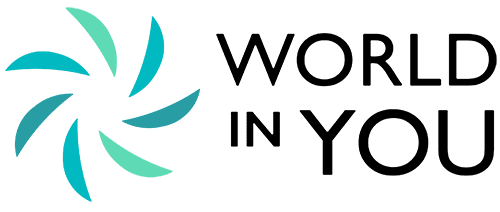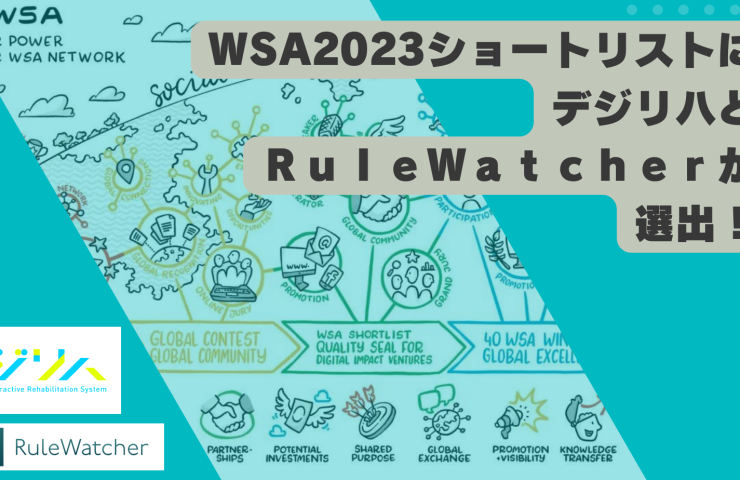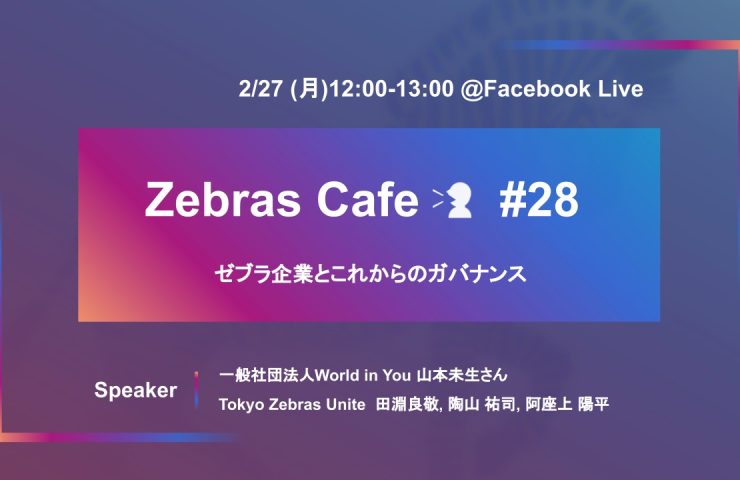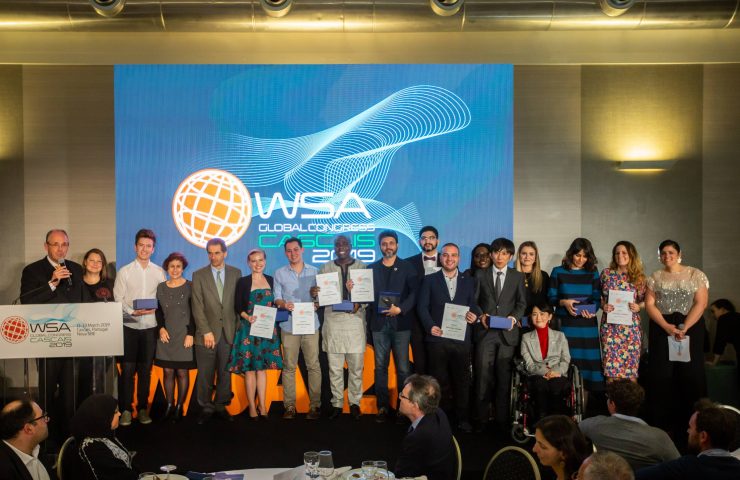From preventive nursing care in Tohoku to world peace - World in You Story with Tohoku social entrepreneur, Daigo Hashimoto
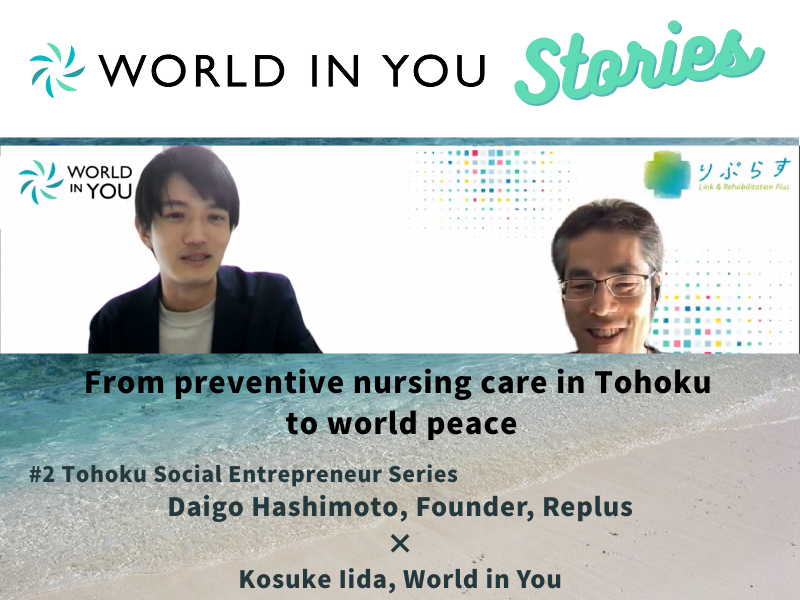
World in You Stories is a series of interviews with people from around the world who are working on something or living their lives with the hope of making the world a better place in small steps. We hope that when the world in you and the world in someone else meet, they will enrich each other and lead to a better society.
Kosuke Iida from World in You listened to the story of Daigo Hashimoto, Founder of Replus, a nonprofit World in You that has supported and collaborated with since 2015.
Speaker: Daigo Hashimoto
Daigo is a physiotherapist and the Founder and Executive Director of Replus. He is from Kashima City, Ibaraki prefecture. In 2013, he started Replus in Ishinomaki, the area heavily hit by the Great East Japan Earthquake. He moved to Nagano prefecture in 2022 and is working on managing his organization remotely. Daigo believes in the potential of people and values partnerships and supporting other people's lives. He was a finalist in the first Nikkei Social Business Competition.
Interviewer: Kosuke Iida
After working in sales at an insurance company, he currently oversees sales in a marketing company. He joined World in You as a pro bono in 2022 January.
This article is a summary of the interview. Please enjoy the full interview via podcast. (Podcast is in Japanese.)
→Listen to the Podcast
・・・・・・・・・・・・・・・・・・・・・・・・・・・・・・
Dots connected in the disaster-hit Tohoku
― Tell us about what you do.
We started Replus in Ishinomaki City severely damaged by the Great East Japan Earthquake to provide rehabilitative and preventive nursing care. We have two care centers.
As ten years passed since the earthquake, we are now focusing on talent development for future expansion including managers and medical and welfare specialists. Our intention from the beginning has been to empower local people to create services and support programs they need to better their communities, rather than my continuing to stay as CEO to run Replus forever. So I decided to move from Ishinomaki to Nagano prefecture this year.
― Why did you start Replus?
When the 2011 earthquake occurred, our hometown in Ibaraki, which is south of Tohoku, was hit by small tsunamis, and roofs were destroyed. As I helped my parents, I experienced firsthand the turmoil of families and the confusion of the people there. Concerned about a much worse situation in Tohoku, I headed for Ishinomaki to help the heavily-affected area.
― What was the situation like in Tohoku?
I found that the needs for medical and nursing care were very high. While there were a lot of specialized medical and nursing care experts in Saitama Prefecture, where I was living at the time, there was so little in Tohoku. The regional disparity shocked me, particularly because the salary of these experts including physical therapists like me comes from the government’s social security budget. Thus I decided to do anything I could do to help in the affected region.
― Why did you choose a physical therapist as your career?
I became a physical therapist when I was 27 years old. Until then, I was working in a hospital as an assistant in the rehabilitation department.
At the hospital, I mainly provided rehabilitation assistance to elderly patients who had broken bones in their hips and other injuries. While accepting dozens of such people every year, I began to think, "It's important to rehabilitate them in the hospital so they can walk home, but don't we need to work on preventing them from falling in the first place?" I began to think, "It is important to be able to walk home after rehabilitation in the hospital.
With this in mind, I decided that I wanted to become a physical therapist who could help prevent injuries and illnesses, I entered a vocational school and became a physical therapist.
In Tohoku, I found many people need help as they get older even before they can qualify for medical and nursing care insurance. That’s why Replus has been working on preventive nursing care.
Create options for people, but don’t force them on what they should do
― Looking back, how were the past ten years after the earthquake for you?
I went through five phases. 2011 to 2013 was a period of emergency. 2013 to 2014 was the start-up (of Replus) period. 2014-2016 was the family phase. I married my partner and had our first child. 2016-2018 was the expansion period. And now we are in a period of change. I told that my family would move outside of Tohoku, and our team has been preparing for the transition.
― Have you noticed any changes in the way you think as well?
Yes, the turning point was when we got married and had a child.
Looking back, I think that until then we had been kind of forced to get better and healthier – what we thought people "should be", on our beneficiaries. That is fine for those who want to get better and healthier, but there are actually not many people who can honestly feel that way. People tend to blame others when they don't really want to get better. Such a relationship is not good for both the beneficiaries and care workers.
Replus supports people, but it is the beneficiary who chooses to use the support. However, there is an information asymmetry between the support recipients and supporters. Not all the choices are visible for the recipient side.
I realized that it is very unfair that the beneficiaries are forced to make decisions without being able to see their options. Making a decision when there is only one choice and making one when there are other options can make a huge difference in one's state of mind. Therefore I began working to keep options as visible as possible.
World peace starts with a family, the smallest unit of society
― What is the next chapter of your life journey?
We are in the transition phase now, and I am exploring what role I need to play as a remote Executive Director. I would also like to do something to improve family relationships because they are one of the key aspects of balancing work and caregiving while preventing quitting work due to care work and caregiver depression.
Our way of thinking and values can change from the time of marriage, a starting point of a new family. It is important to share the change with one’s partner as a family evolves.
There are various issues relating to families such as family nuclearization and the disproportionate burden for families raising children. I think there is something we can do from the smallest unit of society – the family. I believe that exploring how each family can be better could prevent many problems. Of course, we need to work on the policy and external environments to improve the situation. We need to work at both macro and micro levels.
I want to build on our past work in promoting health and wellbeing by enhancing family relationships. Such small steps will collectively lead to world peace.
Collaboration with World in You gave shape to my dream
― What has been your most memorable experience with World in You (then WIT)?
There are three things.
First, thanks to WIT’s support, Replus presented a poster and panel discussion at the American Public Health Association. Japan has been at the forefront of aging and the earthquake aggravated the situation. I have been thinking that we could contribute to other countries by disseminating what is happening here and what we have been working on to address the issue. But I didn’t know how to do that. Collaboration with WIT helped us realize the dream by presenting our work at the overseas conference.
Secondly, WIT Learning Journeys gave me a rare opportunity to discuss with people from diverse sectors. That was a meaningful experience because my usual conversation had been with people from the same industry. The dialogues and discussions I had at Learning Journeys remain vivid in my memory.
Among them was the encounter with Mr. Fujishima, one of the participants and former CEO of Recruit Management Solutions Co. At the time, we were going through a trial-and-error process of launching a new business and establishing a management structure. Mr. Fujishima's expertise helped us grow our people and organization. I had never managed a business before, and his advice as a mentor and board member was a huge help. Even today, I still apply what I learned from him, many of which I did not fully understand at the time but have made sense to me over the years.
Lastly, the open and safe place WIT has created for us. I have learned much from how WIT has run the program and created space for the participants. We use what we learned in our manager training and would like to do so more.
― What specific benefits have you gained from talking with people from diverse sectors?
Leaders are lonely. It was very encouraging to know that there are others in the same situation as me. As I struggled and suffered, taking one step at a time, it was great to have someone I could talk to about even difficult things.
It was also meaningful that Replus’s team members had an opportunity to talk with people from other sectors. It was stimulating for them to know that people outside of our field were also thinking about Tohoku and resonating with our cause.
― What does "world in you" mean to you? In a word, what is the most important thing for you?
I think of two things: the world including my world and other countries, and the time flowing from the past to the future including relationships and stories.
― How do you want the world to be?
I wish a world to be a place where you can share everything from joy and happiness to anxiety and fear. Everyone has negative feelings, but it is hard to take them on oneself. And sharing positive things makes others happy too.
― How do you want to interact with the world?
First, I would like to utilize my current expertise and be useful not only in nursing care but also in countries and regions that need to empower local people and develop talents.
In addition, I want to build a new career by cross-pollinating my expertise with what I will learn next, and to support people in need.
▼Post-interview comment from the interviewer
There are many problems around the world. Yet it is hard for many people including myself to have a sense of ownership and take action to do something about them. I was impressed that Daigo has repeated the cycle of putting his thoughts into his actions and discovering new things from the result that leads to his next action. I strongly felt that I too would like to expand my world by taking action without missing what I sense and feel.
・・・・・・・・・・・・・・・・・・・・・・・・・・・・・・
▼Please tell us your "world in you”!
"World in You" here means "How do you want to spend your time and life? How do you want to connect/interact with the world and society through your life?" Please use this form to tell us what you think.
(This article is a summary of the interview. Please listen to the podcast for the full interview)
